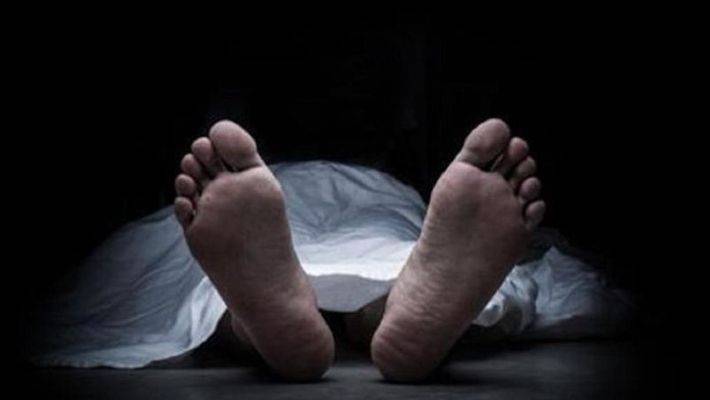
The views and opinions expressed in this article are those of the author and do not necessarily reflect the editorial policy of NayaDaur Media.
Death should be the least important thing in our lives. Death is not important. Life is. Death should come at an old age when we have lived our lives. But that’s an ideal situation. Tragedies are embedded in life. Some die young, in unfortunate circumstances. But there is another kind of human condition which makes the tragedy of death come for you too soon: identity. In Pakistan that’s the case most specifically if you are a Baloch or a Pashtun. We shouldn’t be talking of death but when death is all around us, it becomes dishonest and cowardice not to talk about death.
In the last three days there have been four deaths which have thrown all those having a soul into a deep sense of loss, concern and anxiety over the future. Arif Wazir, a senior leader of PTM, Sajid Hussain a Baloch dissident living in Sweden, and two young students Ihsan Baloch and Shahdad Baloch have been killed. All these deaths or if you call them, murders, compress into a matter of days the coordinates of all spatio-temporal oppression embedded in exclusionist idea of a country with no ethnic diversity. Their deaths are sobering reminders of the hard path that the struggle for an alternative future is. They have become the extension of the long arc of memories which fashion our today, our imagination and in a dual movement inspire us and make us cautious or calculated.
The algebra of the political struggle in what to say, what not to say, where the line is and what not to cross is shaped and defined by every new tragedy of loss of a human life. Of course, there is a plausible deniability on part of the powers that be but it only takes basic arithmetic to calculate what gets you killed and what gets you rewarded in the Islamic Republic of Pakistan. The algebra of our imagination also disciplines our languages, our bodies and even our basic human instinct of expression of grief and solidarity in mourning. We can mourn but not too much. We can express our anger but not too much. We can think of a future but maybe not now. Not today when our comrades paid the price with their lives, the cautious instinct may tell us.
Such anxieties of losing comrades are the junctures to reaffirm our faith in the struggle. I, as a Pashtun, can talk intimately only of the Pashtun condition over which the securitized space, imaginary and war economy is defined. I, as a human, also have empathy though. And can talk about the Baloch as well as many others. But not talking about the harrowing experiences of Baloch in Pakistan is building a fort of struggle over the erasure of the subaltern. There can’t be oppression Olympics, but Baloch are the wretched of the earth. Pashtuns have seen tragedies massacres, deaths, bombings and unspeakable scars on their collective body, but Pashtuns have been able to speak, to articulate their pain. Because Pashtuns are large in numbers, are part of the core and mainstream, as well have witnesses. The Baloch, if it wasn’t happening in a real world, would seem to be living in a cut-off island where whatever happens doesn’t count. Almost as if they were living in a computer simulation where the same story can be repeated again and again.
Shahdad Baloch and Ihsan Baloch, two young students, were killed. Some say they were militant. Even if they were, the question remains what pushed Shahdad towards that? Shahdad’s videos and pictures as a student activist and a curious young man are all over the social media. The answer is provided by Sajid Hussain, who had to take asylum in Sweden but even there he wasn’t safe. Arif Wazir was killed because they didn’t know how to rein in such a fierce spirit that years of imprisonment hasn’t been able to break. But people came out for him, at-least his own people in droves. Do they want the youth to have no other option but to go on suicidal route?
Arif Wazir walks the path of Arman Luni, his comrade from PTM, and 17 members of his family who were killed by Taliban. Sajid Hussain, Shahdad Baloch and Ihsan Baloch will one day be added to the long list of anonymous martyrs, who although are alive in the political imagination of the Baloch politics but don’t matter to the mainstream consciousness. For that matter Arman Luni, Arif Wazir, the martyrs of KharQamar massacre also feature nowhere in the national political or social consciousness of the mainstream Pakistan. Where will they all live? They must live in politics of resistance whose political and social consciousness is participatory, emancipatory and whose imaginary is an egalitarian and equal future.
This moment may make one fall into the pity-trap of victimhood, but such moments in fact become the juncture of a resurgent revolutionary inspiration. The memory of those who sacrificed their lives ought to be articulated in a political programme. This is a long struggle. It also is hard but giving up is death.
On the other side of the divide stands unchallenged authoritarianism and arbitrary hold and use of power where will of an individual is the ink of the law. The cruelest of times also provide the sharpest dividing line for moral clarity.
Perhaps, in no other time was the moral choice clearer: politics of emancipatory-solidarity or unbridled barbarian authoritarianism.
